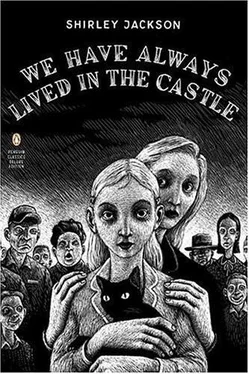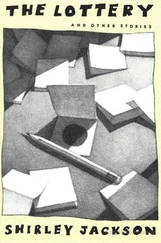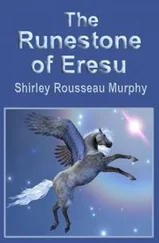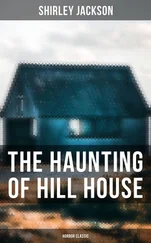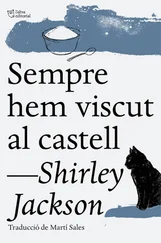Shirley Jackson - We Have Always Lived in the Castle
Здесь есть возможность читать онлайн «Shirley Jackson - We Have Always Lived in the Castle» весь текст электронной книги совершенно бесплатно (целиком полную версию без сокращений). В некоторых случаях можно слушать аудио, скачать через торрент в формате fb2 и присутствует краткое содержание. Город: New York, Год выпуска: 2006, ISBN: 2006, Издательство: Penguin Books, Жанр: Триллер, gothic_novel, на английском языке. Описание произведения, (предисловие) а так же отзывы посетителей доступны на портале библиотеки ЛибКат.
- Название:We Have Always Lived in the Castle
- Автор:
- Издательство:Penguin Books
- Жанр:
- Год:2006
- Город:New York
- ISBN:978-1-101-53065-8
- Рейтинг книги:3 / 5. Голосов: 1
-
Избранное:Добавить в избранное
- Отзывы:
-
Ваша оценка:
- 60
- 1
- 2
- 3
- 4
- 5
We Have Always Lived in the Castle: краткое содержание, описание и аннотация
Предлагаем к чтению аннотацию, описание, краткое содержание или предисловие (зависит от того, что написал сам автор книги «We Have Always Lived in the Castle»). Если вы не нашли необходимую информацию о книге — напишите в комментариях, мы постараемся отыскать её.
is a deliciously unsettling novel about a perverse, isolated, and possibly murderous family and the struggle that ensues when a cousin arrives at their estate.
We Have Always Lived in the Castle — читать онлайн бесплатно полную книгу (весь текст) целиком
Ниже представлен текст книги, разбитый по страницам. Система сохранения места последней прочитанной страницы, позволяет с удобством читать онлайн бесплатно книгу «We Have Always Lived in the Castle», без необходимости каждый раз заново искать на чём Вы остановились. Поставьте закладку, и сможете в любой момент перейти на страницу, на которой закончили чтение.
Интервал:
Закладка:
She took out the chicken, wrapped in a napkin, and the little package of cookies, touching each lovingly and with gentleness. “Everything’s still warm,” she said. “She must have baked them right after dinner, so he could bring them right over. I wonder if she made two pies, one for the house. She wrapped everything while it was still warm and told him to bring them over. These cookies are not crisp enough.”
“I’ll take the basket back and leave it on the porch, so he’ll know we found it.”
“No, no.” Constance caught me by the arm. “Not until I’ve washed the napkins; what would she think of me?”
Sometimes they brought bacon, home-cured, or fruit, or their own preserves, which were never as good as the preserves Constance made. Mostly they brought roasted chicken; sometimes a cake or a pie, frequently cookies, sometimes a potato salad or coleslaw. Once they brought a pot of beef stew, which Constance took apart and put back together again according to her own rules for beef stew, and sometimes there were pots of baked beans or macaroni. “We are the biggest church supper they ever had,” Constance said once, looking at a loaf of homemade bread I had just brought inside.
These things were always left on the front doorstep, always silently and in the evenings. We thought that the men came home from work and the women had the baskets ready for them to carry over; perhaps they came in darkness not to be recognized, as though each of them wanted to hide from the others, and bringing us food was somehow a shameful thing to do in public. There were many women cooking, Constance said. “Here is one,” she explained to me once, tasting a bean, “who uses ketchup, and too much of it; and the last one used more molasses.” Once or twice there was a note in the basket: “This is for the dishes,” or “We apologize about the curtains,” or “Sorry for your harp.” We always set the baskets back where we had found them, and never opened the front door until it was completely dark and we were sure that no one was near. I always checked carefully afterwards to make certain that the front door was locked.
I discovered that I was no longer allowed to go to the creek; Uncle Julian was there, and it was much too far from Constance. I never went farther away than the edge of the woods, and Constance went only as far as the vegetable garden. I was not allowed to bury anything more, nor was I allowed to touch stone. Every day I looked over the boards across the kitchen windows and when I found small cracks I nailed on more boards. Every morning I checked at once to make sure the front door was locked, and every morning Constance washed the kitchen. We spent a good deal of time at the front door, particularly during the afternoons, when most people came by; we sat, one on either side of the front door, looking out through the narrow glass panels which I had covered almost entirely with cardboard so that we had each only a small peephole and no one could possibly see inside. We watched the children playing, and the people walking past, and we heard their voices and they were all strangers, with their wide staring eyes and their evil open mouths. One day a group came by bicycle; there were two women and a man, and two children. They parked their bicycles in our driveway and lay down on our front lawn, pulling at the grass and talking while they rested. The children ran up and down our driveway and over and around the trees and bushes. This was the day that we learned that the vines were growing over the burned roof of our house, because one of the women glanced sideways at the house and said that the vines almost hid the marks of burning. They rarely turned squarely to look at our house face to face, but looked from the corners of their eyes or from over a shoulder or through their fingers. “It used to be a lovely old house, I hear,” said the woman sitting on our grass. “I’ve heard that it was quite a local landmark at one time.”
“Now it looks like a tomb,” the other woman said.
“Shh,” the first woman said, and gestured toward the house with her head. “I heard,” she said loudly, “that they had a staircase which was very fine. Carved in Italy, I heard.”
“They can’t hear you,” the other woman said, amused. “And who cares if they do, anyway?”
“Shhh.”
“No one knows for sure if there’s anyone inside or not. The local people tell some tall tales.”
“Shh. Tommy,” she called to one of the children, “don’t you go near those steps.”
“Why?” said the child, backing away.
“Because the ladies live in there, and they don’t like it.”
“Why?” said the child, pausing at the foot of the steps and giving a quick look backward at our front door.
“The ladies don’t like little boys,” the second woman said; she was one of the bad ones; I could see her mouth from the side and it was the mouth of a snake.
“What would they do to me?”
“They’d hold you down and make you eat candy full of poison; I heard that dozens of bad little boys have gone too near that house and never been seen again. They catch little boys and they—”
“Shh. Honestly, Ethel.”
“Do they like little girls?” The other child drew near.
“They hate little boys and little girls. The difference is, they eat the little girls.”
“Ethel, stop. You’re terrifying the children. It isn’t true, darlings; she’s only teasing you.”
“They never come out except at night,” the bad woman said, looking evilly at the children, “and then when it’s dark they go hunting little children.”
“Just the same,” the man said suddenly, “I don’t want to see the kids going too near that house.”
Charles Blackwood came back only once. He came in a car with another man late one afternoon when we had been watching for a long time. All the strangers had gone, and Constance had just stirred and said, “Time to put on the potatoes,” when the car turned into the driveway and she settled back to watch again. Charles and the other man got out of the car in front of the house and walked directly to the foot of the steps, looking up, although they could not see us inside. I remembered the first time Charles had come and stood looking up at our house in just the same manner, but this time he would never get in. I reached up and touched the lock on the front door to make sure it was fastened, and on the other side of the doorway Constance turned and nodded to me; she knew, too, that Charles would never get in again.
“See?” Charles said, outside, at the foot of our steps. “There’s the house, just like I said. It doesn’t look as bad as it did, now the vines have grown so. But the roof’s been burned away, and the place was gutted inside.”
“Are the ladies in there?”
“Sure.” Charles laughed, and I remembered his laughter and his big staring white face and from inside the door I wished him dead. “They’re in there all right,” he said. “And so is a whole damn fortune.”
“You know that?”
“They’ve got money in there’s never even been counted. They’ve got it buried all over, and a safe full, and God knows where else they’ve hidden it. They never come out, just hide away inside with all that money.”
“Look,” the other man said, “they know you, don’t they?”
“Sure. I’m their cousin. I came here on a visit once.”
“You think there’s any chance you might get one of them to talk to you? Maybe come to the window or something, so I could get a picture?”
Charles thought. He looked at the house and at the other man, and thought. “If you sell this, to the magazine or somewhere, do I get half?”
“Sure, it’s a promise.”
“I’ll try it,” Charles said. “You get back behind the car, out of sight. They certainly won’t come out if they see a stranger.” The other man went back to the car and took out a camera and settled himself on the other side of the car where we could not see him. “Okay,” he called, and Charles started up the steps to our front door.
Читать дальшеИнтервал:
Закладка:
Похожие книги на «We Have Always Lived in the Castle»
Представляем Вашему вниманию похожие книги на «We Have Always Lived in the Castle» списком для выбора. Мы отобрали схожую по названию и смыслу литературу в надежде предоставить читателям больше вариантов отыскать новые, интересные, ещё непрочитанные произведения.
Обсуждение, отзывы о книге «We Have Always Lived in the Castle» и просто собственные мнения читателей. Оставьте ваши комментарии, напишите, что Вы думаете о произведении, его смысле или главных героях. Укажите что конкретно понравилось, а что нет, и почему Вы так считаете.
